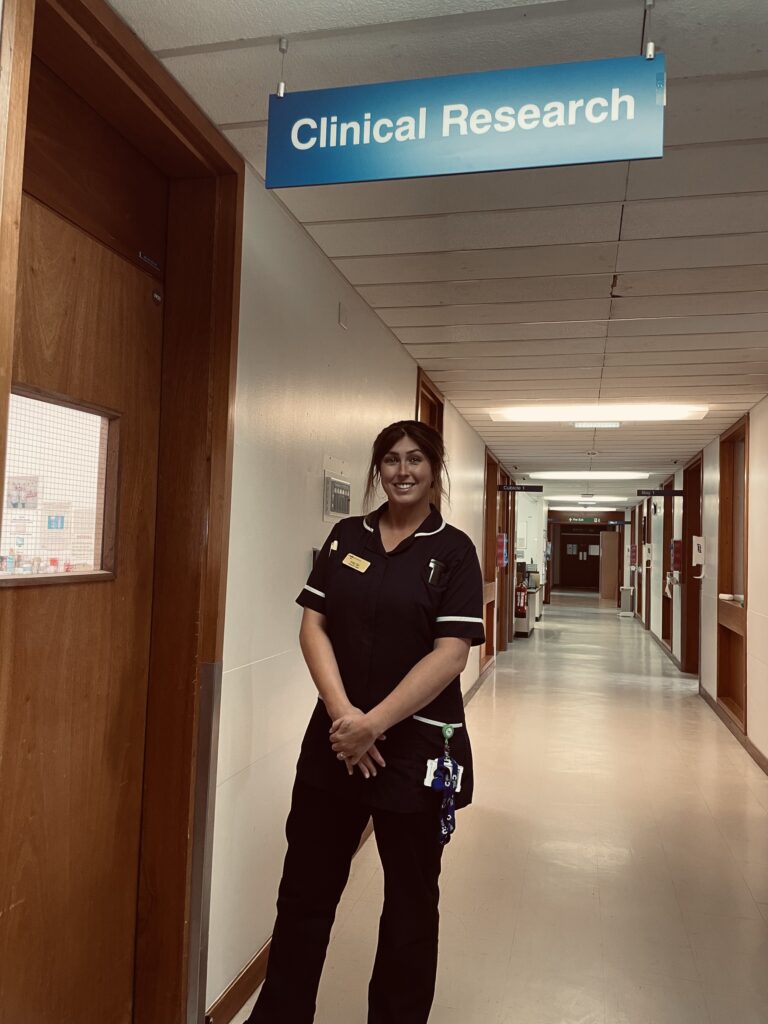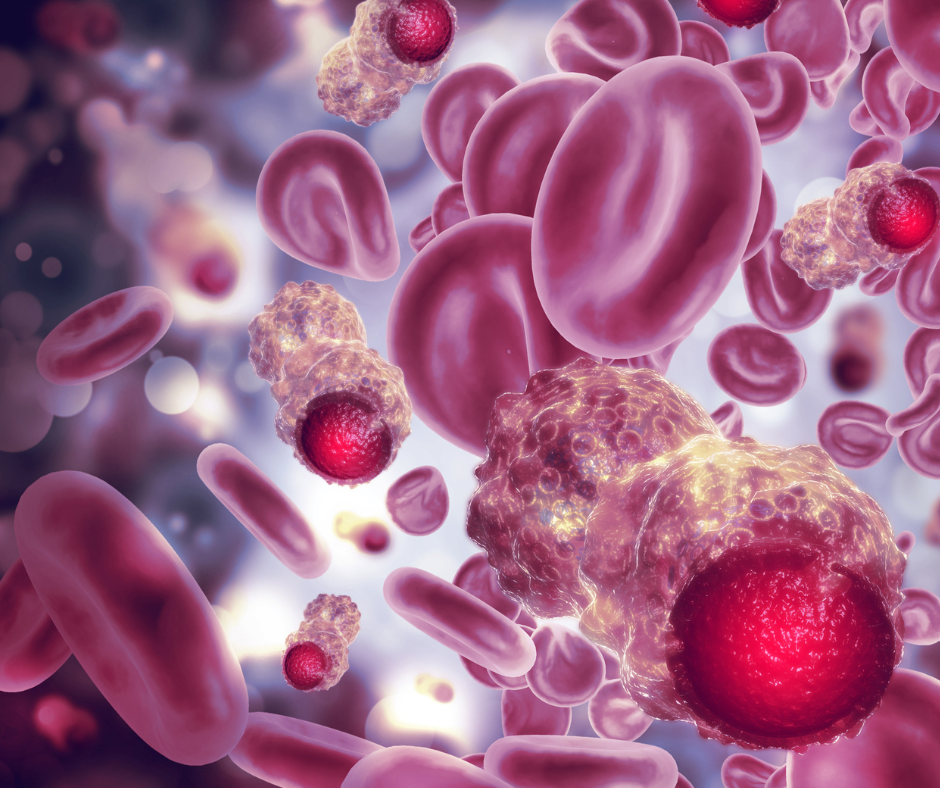Clinical trials have paved the way for some of today’s most effective cancer treatments. Trials continue to play a vital role in the discovery and testing of new cancer therapies and can sometimes gift patients more time with loved ones.
In support of September’s Blood Cancer Awareness Month, we sat down with Katy Tait, who is a deputy sister on ward 11 at the Freeman Hospital.
Tell us about the team and the type of clinical trials you work on

The ward 11 team delivers all phases of clinical trials to patients with every form of blood cancer, and some non-malignant haematological disorders, such as thrombosis.
In addition to blood cancer trials, we also deliver late phase oncology trials for patients with many different types of cancer, including bowel, breast, lung, and brain.
From April 2023 – present, more than 165 patients took part in blood cancer and late phase oncology trials at Newcastle Hospitals.
There are currently 57 studies open to patient recruitment and many more in set-up and follow-up stages. Needless to say, we’re a busy team!
We have a team of highly skilled nurses, with a vast experience in cancer care; they are specialists within their field of cancer research and clinical trial delivery of cancer therapies.
We also work in partnership with the wider multidisciplinary team, including the teenage/young adult service, deliver our innovative clinical trials.
Tell us a bit about yourself.
Prior to working in clinical research, I worked as a staff nurse in neurosurgery, before moving onto where my passion was – oncology. From 2015, I worked on ward 35 at the Northern Centre for Cancer Care (Freeman Hospital).
In 2020, I joined the team Oncology/Haematology Research team as a research nurse, and progressed to my current role of Deputy Sister in 2022.
Why did you decide to work in cancer research?
I think we all know someone who has been directly affected by cancer and the impact it can have patients and loved ones. Being able to play a part in discovering new treatments that could prolong or save someone’s life was a huge pull towards choosing a career in research.
Ultimately, most, if not all, treatments would have been the subject of a trial or study at some point. Without research, many of our modern-day treatments just wouldn’t exist.
What does a typical day look like?
The role is so varied and diverse that it is difficult to say what a typical day looks like.
We help to identify patients who might be eligible to take part in one of our trials, working closely withdoctors, specialist nurses and pharmacists who play a pivotal role in this.
When a patient comes to the ward, we perform observation – height/weight, blood tests, ECG, and other relevant assessments– to ensure they are well enough to take part or continue with their trial treatment.
All pre-treatment assessments are dependent on what the trial protocol for each specific study requests. It’s my job to make sure these protocols are strictly adhered to, and that accurate results/data are recorded.
Other tasks include scheduling patient’s treatment/medical reviews, liaising with support services to book various scans, like MRIs and CTs, lung/kidney/heart function assessments.
What do you love most about your job?
Working in research means you really get to know the patient. They’re coming onto the ward frequently for trial treatments/assessments, so we’re in regular contact with them.
In previous roles, it wasn’t always possible to get to know patients very well due to the nature of inpatient services, so being able to provide personalised care is something I really enjoy about the role.
It is incredible to see the new therapies coming through clinical trials, especially when patients have undergone multiple lines of unsuccessful treatment prior to take part in a trial.
Nothing compares to seeing a patient being able to spend more time with loved ones and live a better quality of life thanks to new therapies that have put their cancer in remission. It is one of the best things about working in research.
Katy Tait, deputy research sister at the Freeman Hospital

Blood cancer is the fifth most common type of cancer in the UK. What symptoms should people look out for?
Blood cancers affect the production and function of blood cells. There are many different symptoms, including but not limited to: unexplained weight loss, unexplained bruising or bleeding, lumps or swellings, shortness of breath, tiredness that doesn’t improve with rest or sleep, and paleness.
If you have any new or worrying symptoms, it is important to make an appointment with you GP as soon as possible so that they can investigate the cause.
For more information about blood cancers and symptoms, visit Blood Cancer.org
